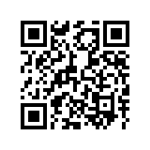發展高中教師教數學所需的知識之問卷:探索性研究
作者:林勇吉(國立彰化師範大學科學教育研究所)、金鈐(國立臺灣師範大學數學系)
卷期:59卷第3期
日期:2014年9月
頁碼:133-160
DOI:10.6209/JORIES.2014.59(3).05
摘要:
本研究旨在描述如何發展高中教師「教數學所需的知識」(MKT)問卷。研究結果以一個具代表性的問題為例。呈現這個代表性問題如何發展與不斷精緻,最後報導本問卷的前導測驗結果。本研究發現三個有效的創造問卷的策略:一、使用具有「關鍵」教學知識的數學問題(教導這個數學問題,需要一個基礎、重要且不能忽略的核心知識)。二、使用學生非例行性解法。三、使用教師在實際教學上的錯誤。本研究希望提供相關領域研究者,如何設計MKT問卷的參考依據。
關鍵詞:高中數學、評量工具、問卷發展、教數學所需的知識、教師知識
 《詳全文》
《詳全文》

參考文獻:
- Ball, D. L., & Bass, H. (2009, March) With an eye on the mathematical horizon: Knowing mathematics for teaching to learners’ mathematical futures. Paper presented at the 43rd Jahrestagung der Gesellschaft für Didaktik der Mathematik, Oldenburg, Germany.
- Ball, D. L., Thames, M. H., Bass, H., Sleep, L., Lewis, J., & Phelps, G. (2009). A practice-based theory of mathematical knowledge for teaching. In M. Tzekaki, M. Kaldrimidou, & H. Sakonidis (Eds.), Proceedings of the 33rd conference of the international group for the psychology of mathematics education (Vol. 1; pp. 95-98). Thessaloniki, Greece: PME.
- Ball, D. L., Thames, M. H., & Phelps, G. (2008). Content knowledge for teaching: What makes it special? Journal of Teacher Education, 59(5), 389-407. doi:10.1177/0022487108324554
- Bell, C. A., Wilson, S. M., Higgins, T., & McCoach, D. B. (2010). Measuring the effects of professional development on teacher knowledge: The case of developing mathematical ideas. Journal for Research in Mathematics Education, 41(5), 479-512.
- Borasi, R. (1996). Reconceiving mathematics instruction: A focus on errors. Santa Barbara, CA: Greenwood Publishing Group.
» 展開更多
- Ball, D. L., & Bass, H. (2009, March) With an eye on the mathematical horizon: Knowing mathematics for teaching to learners’ mathematical futures. Paper presented at the 43rd Jahrestagung der Gesellschaft für Didaktik der Mathematik, Oldenburg, Germany.
- Ball, D. L., Thames, M. H., Bass, H., Sleep, L., Lewis, J., & Phelps, G. (2009). A practice-based theory of mathematical knowledge for teaching. In M. Tzekaki, M. Kaldrimidou, & H. Sakonidis (Eds.), Proceedings of the 33rd conference of the international group for the psychology of mathematics education (Vol. 1; pp. 95-98). Thessaloniki, Greece: PME.
- Ball, D. L., Thames, M. H., & Phelps, G. (2008). Content knowledge for teaching: What makes it special? Journal of Teacher Education, 59(5), 389-407. doi:10.1177/0022487108324554
- Bell, C. A., Wilson, S. M., Higgins, T., & McCoach, D. B. (2010). Measuring the effects of professional development on teacher knowledge: The case of developing mathematical ideas. Journal for Research in Mathematics Education, 41(5), 479-512.
- Borasi, R. (1996). Reconceiving mathematics instruction: A focus on errors. Santa Barbara, CA: Greenwood Publishing Group.
- Chazan, D., Herbst, P., & Sela., H (2011). Instructional alternatives via a virtual setting: Rich media supports for teacher development. In O. Zaslavsky & P. Sullivan (Eds.), Constructing knowledge for teaching secondary mathematics: Tasks to enhance prospective and practicing teacher learning (pp. 23-37). New York, NY: Springer. doi:10.1007/978-0-387-09812-8_2
- Figueiras, L., & Deulofeu, J. (2005). Visualising and conjecturing solutions for Heron’s problem. In M. Bosch (Ed.), Proceedings of the CERME 4 international conference (pp. 420-427). Sant Feliu de Guixols, Spain: CERME.
- Heath, T. L. (1921). A history of Greek mathematics (Vols. I&II). New York, NY: Dover.
- Herbst, P., & Kosko, K. (2012, November). Mathematical knowledge for teaching high school geometry. Paper presented at the Proceedings of the 34th annual meeting of the North American Chapter of the International Group for the Psychology of Mathematics Education, Kalamazoo, MI.
- Hill, H. C. (2010). The nature and predictors of elementary teachers’ mathematical knowledge for teaching. Journal for Research in Mathematics Education, 41(5), 513-545.
- Hill, H. C., Ball, D. L., & Schilling, S. G. (2008). Unpacking “pedagogical content knowledge”: Conceptualizing and measuring teachers’ topic-specific knowledge of students. Journal for Research in Mathematics Education, 39(4), 372-400.
- Hill, H. C., Schilling, S. G., & Ball, D. L. (2004). Developing measures of teachers’ mathematics knowledge for teaching. The Elementary School Journal, 105(1), 11-30. doi:10.1086/428763
- Hill, H. C., Sleep, L., Lewis, J., & Ball, D. L. (2007). Assessing teachers’ mathematical knowledge: What knowledge matters and what evidence counts. In F. K. Lester (Ed.), Second handbook of research on mathematics teaching and learning (pp. 111-156). Charlotte, NC: Information Age.
- Jakobsen, A., Thames, M. H., Ribeiro, C. M., & Delaney, S. (2012, July). Using practice to define and distinguish horizon content knowledge. Paper presented at 12th International Congress on Mathematics Education, Seoul, South Korea.
- Kersting, N. (2008). Using video clips as item prompts to measure teachers’ knowledge of teaching mathematics. Educational and Psychological Measurement, 68(5), 845-861. doi:10.1177/ 001316 4407313369
- Kersting, N. B., Givvin, K. B., Sotelo, F. L., & Stigler, J. W. (2010). Teachers’ analyses of classroom video predict student learning: Further explorations of a novel measure of teacher knowledge. Journal of Teacher Education, 61(1-2), 172-181. doi:10.1177/0022487109347875
- Lin, Y.-C., & Chin, C. (in press). Extending the conception of Horizon Content Knowledge: Fundamental mathematical knowledge and a sample assessment item. Chinese Journal of Science Education.
- Manizade, A. G., & Mason, M. M. (2011). Using Delphi methodology to design assessments of teachers’pedagogical content knowledge. Educational Studies in Mathematics, 76(2), 183-207. doi:10.1007/s10649-010-9276-z
- Osana, H. P., Lacroix, G. L., Tucker, B. J., & Desrosiers, C. (2006). The role of content knowledge and problem features on preservice teachers’ appraisal of elementary mathematics tasks. Journal of Mathematics Teacher Education, 9(4), 347-380. doi:10.1007/s10857-006-4084-1
Journal directory listing - Volume 59 (2014) - Journal of Research in Education Sciences【59(3)】September
Developing an Instrument for Capturing High School Teachers’ Mathematics Knowledge for Teaching: An Exploratory Study
Author: Yung-Chi Lin(Graduate Institute of Science Education, National Changhua University of Education),Chien Chin(Department of Mathematics, National Taiwan Normal University)
Vol.&No.:Vol. 59, No. 3
Date:September 2014
Pages:133-160
DOI:10.6209/JORIES.2014.59(3).05
Abstract:
This paper addresses an effort to design and test a set of items for assessing the mathematics knowledge for teaching. The paper begins by describing how a representative item was developed based on three experienced high school teachers’ analyzing classroom instruction. Subsequently, item refinement by two experts is documented. Finally, the initial results of a pilot-test of a focus group of 11 high school mathematics teachers are reported. This study revealed three useful methods for creating items for assessment: (1) using mathematics problems containing certain key mathematical ideas; (2) using nonstandard approaches of students that are unfamiliar to the teachers; and (3) using the errors of teachers.
Keywords:high school mathematics, instrument, item development, mathematics knowledge for teaching (MKT), teacher knowledge